VERAPAMIL EXTENDED-RELEASE CAPSULE - ORAL
PHONETIC PRONUNCIATION: (ver-AP-a-mil)
COMMON BRAND NAME(S): Verelan
GENERIC NAME(S): verapamil HCl
Uses
USES: Verapamil is used to treat high blood pressure. Lowering high blood pressure helps prevent strokes, heart attacks, and kidney problems. Verapamil belongs to a class of drugs known as calcium channel blockers. It works by relaxing blood vessels so blood can flow more easily. Verapamil may also lower your heart rate.
How to use VERAPAMIL EXTENDED-RELEASE CAPSULE - ORAL
HOW TO USE: Take this medication by mouth with or without food as directed by your doctor, usually once daily. Depending on your specific brand, take this medication either in the morning or at bedtime as directed. Consult your pharmacist if you have any questions about when to take the medication. Swallow the capsules whole. Do not crush or chew the capsules. Doing so can release all of the drug at once and may increase your risk of side effects. If you have trouble swallowing the capsule, you may open the capsule and carefully sprinkle its contents on a spoonful of soft, cool applesauce just before you take it. Swallow all of the drug/food mixture right away without chewing. Then rinse your mouth and swallow the rinse liquid to make sure that you have swallowed all of the medicine. Do not chew the mixture or prepare a supply in advance. The dosage is based on your medical condition and response to treatment. Use this medication regularly to get the most benefit from it. To help you remember, take it at the same time each day. For the treatment of high blood pressure, it may take a week before you get the full benefit of this drug. Keep taking this medication even if you feel well. Most people with high blood pressure do not feel sick. Do not stop taking this medication without consulting your doctor. Some conditions may become worse when this drug is suddenly stopped. Your dose may need to be gradually decreased. Tell your doctor if your condition does not get better or if it gets worse (your blood pressure readings remain high or increase).
Side Effects
Precautions
Interactions
Overdose
Images
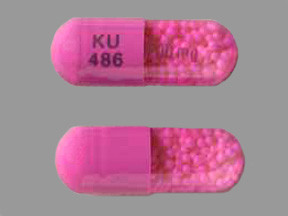
- color
- amethyst
- shape
- oblong
- imprint
- KU 486, 200 mg
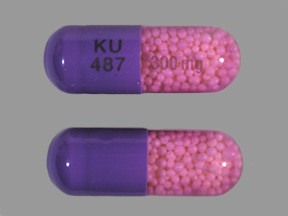
- color
- amethyst
- shape
- oblong
- imprint
- KU 487, 300 mg
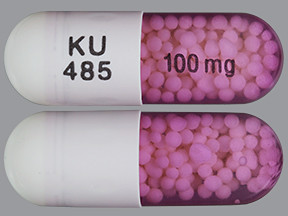
- color
- amethyst
- shape
- oblong
- imprint
- KU 485, 100 mg

- color
- amethyst
- shape
- oblong
- imprint
- KU 486, 200 mg

- color
- amethyst
- shape
- oblong
- imprint
- KU 487, 300 mg
Reviews
Faq for VERAPAMIL EXTENDED-RELEASE CAPSULE - ORAL
Verapamil extended-release capsule is used to treat high blood pressure and chest pain (angina).
Verapamil extended-release capsule works by relaxing blood vessels, thus improving blood flow and reducing the workload on the heart.
Verapamil extended-release capsule should be taken as prescribed by your doctor. It is usually taken once daily with food. Swallow the capsule whole, without chewing or crushing.
The common side effects of Verapamil extended-release capsule include dizziness, headache, constipation, nausea, and tiredness.
It is not recommended to drink alcohol while taking Verapamil extended-release capsule as it can increase the risk of side effects, such as dizziness and drowsiness.
Yes, Verapamil extended-release capsule can interact with certain medications, including other blood pressure medications, certain antibiotics, antifungal medications, and drugs used to treat depression or anxiety. It is essential to inform your doctor about all the medications you are taking before starting Verapamil.
Verapamil extended-release capsule may take several weeks to start working effectively. It is important to continue taking the medication as prescribed by your doctor, even if you do not immediately feel its effects.
Verapamil extended-release capsule should be used with caution in patients with certain heart conditions, liver or kidney problems, low blood pressure, or a history of heart failure. It may also interact with grapefruit or grapefruit juice, so it is advisable to avoid these while taking the medication.
If you miss a dose of Verapamil extended-release capsule, take it as soon as you remember. However, if it is close to the time for your next dose, skip the missed dose and resume your regular dosing schedule. Do not double the dose to make up for a missed one.
Disclaimer
IMPORTANT: HOW TO USE THIS INFORMATION: This is a summary and does NOT have all possible information about this product. This information does not assure that this product is safe, effective, or appropriate for you. This information is not individual medical advice and does not substitute for the advice of your health care professional. Always ask your health care professional for complete information about this product and your specific health needs.
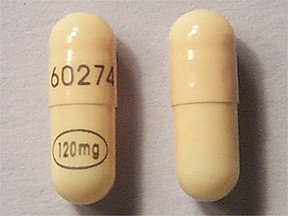
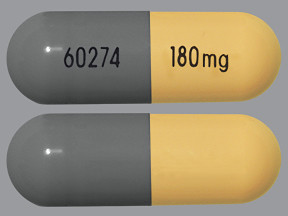
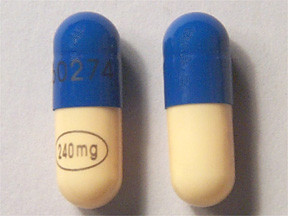
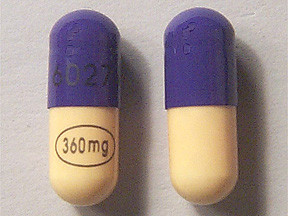
No Reviews Yet